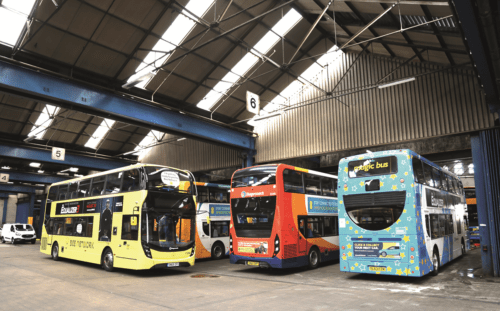
Jonathan Welch speaks to Stagecoach Manchester Operations Director Rebecca Rathore about the challenges of franchising and the driver shortage
In issue 1594, we looked at Stagecoach Manchester’s driver training regime, from first day to ongoing CPC training, and discovered an enthusiastic team of trainers with genuine pride in what they do. This was all the more impressive given the upheaval the bus industry in Manchester is going through during the move to Transport for Greater Manchester’s new Bee Network franchising regime.
The operator’s operations team is led by Operations Director Rebecca Rathore. Rebecca is also one of a growing number of women rising through the ranks of the industry and, alongside the everyday needs of running a large bus operation in one of the UK’s major cities, is helping to raise awareness of careers in coach and bus for women, as well as the issues women can face in the sector. Among other achievements, earlier this year she was named winner of the Everywoman in Logistics & Transport ‘Customer/Passenger Award’ for customer excellence in a transport environment, and she was a guest speaker and panelist at the Women in Bus & Coach network’s launch summit in Birmingham in October.
I spoke to Rebecca to find out a bit more about the challenges behind the move to a franchise system, as well as her experiences of the industry, before taking a look around the company’s Hyde Road depot and meeting some other key members of the team who help to keep the city’s bus services running. We were joined by Head of Franchise Mobilisation Zac McAskill.
A life in transport
[…]By subscribing you will benefit from:
- Operator & Supplier Profiles
- Face-to-Face Interviews
- Lastest News
- Test Drives and Reviews
- Legal Updates
- Route Focus
- Industry Insider Opinions
- Passenger Perspective
- Vehicle Launches
- and much more!


